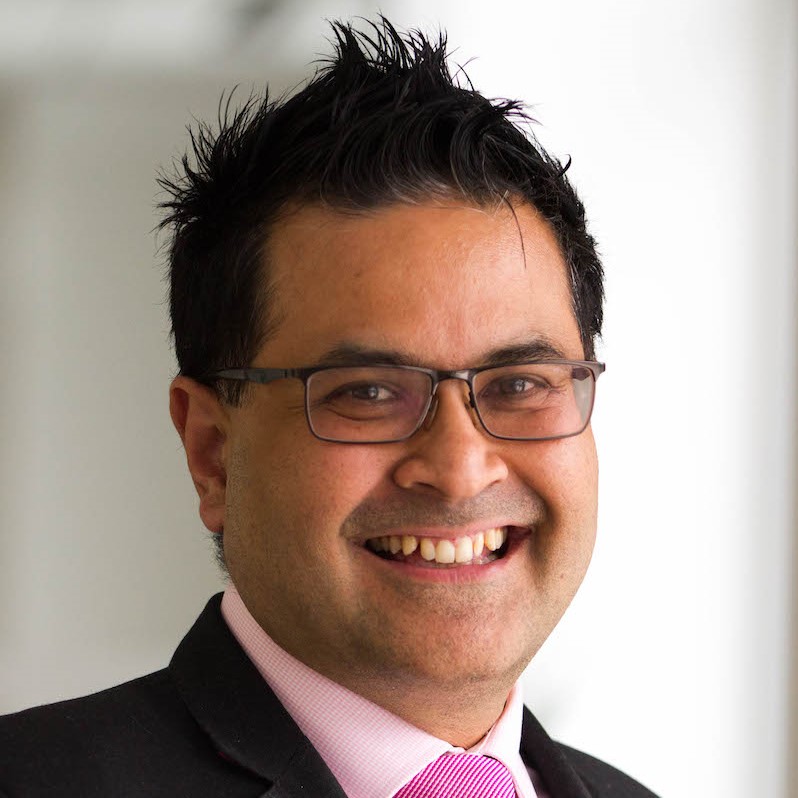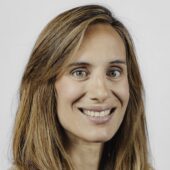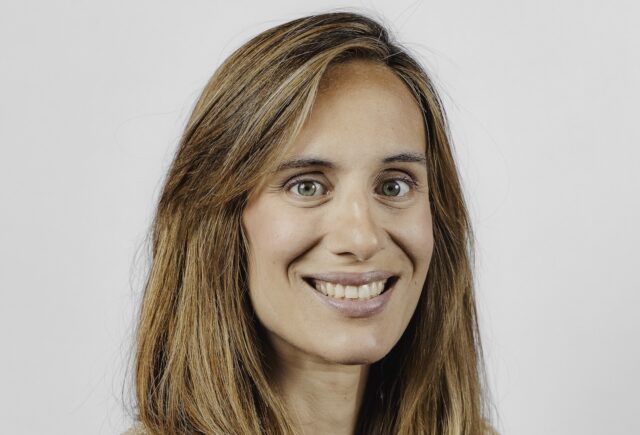“We’re a place to look for early first ideas.” Ian de Cruz tells us how P4G has found a niche between development finance institutions (DFIs) and private capital.

CV
- Global Director, P4G 2018 – present
- Deputy Director, Global Commission on Economy & Climate 2013-17
- Policy & Strategy Manager, Carbon Net 2010-13
- Head of Climate Change, World Vision Australia 2008-10
- MBA Australian Graduate School of Management 1999-2001
- Law, University of Western Australia 1991-6
“High risk for high impact, that’s what we do.” Ian de Cruz, Global Director of P4G, a network of global leaders aiming to accelerate the implementation of the UN’s Sustainable Development Goals (SDGs), is crystal clear about his mission.
It’s “all about providing catalytic capital. Occupying a space in a fragmented investment value chain, somewhere between DFIs and private capital.”
P4G was founded in 2017 by the Danish government. Initially dubbed the Green Growth Forum in Copenhagen, it eventually became known as P4G when it was moved to Washington, DC, near the World Resources Institute.
It brings together the private sector, civil society and public authorities in partnerships for green and inclusive growth. “They wanted a coalition of doers and brought in the Netherlands and South Korea as core funders,” recalls de Cruz.
The South Korean involvement with this European initiative is an interesting twist. De Cruz says they bring a particular focus on technology, which suits what P4G does. “We take technology and new ideas from developed countries and scale solutions in our chosen developing countries.”
He cites a crucial contribution from Korean battery technology to projects in electric mobility – two-wheelers in Kenya and electric buses in Colombia.
P4G has eight target countries. Three in Africa: Ethiopia, Kenya, and South Africa; three in Latin America: Colombia, and Mexico; and three in Asia: Bangladesh, Indonesia, and Vietnam. Although based in Washington, de Cruz is now working to decentralise decision-making into these “partner countries.”
Catalytic capital
But what does P4G mean by catalytic capital? “Our niche is to take the most promising development concepts and turn them into more market-based solutions on a pathway to commercialisation. This is difficult work, but hugely impactful,” says de Cruz.
The intellectual roots of de Cruz’s thinking were forged in his background in Australia –- “I’ve always looked from a public policy lens” –- and flourished when he worked with Professor Ross Garnaut, one of Australia’s most influential academic economists.
Garnaut showed de Cruz “the benefits to action” and opened his eyes to “the $26 trillion capitalist opportunity fighting climate change and simultaneously transforming developing countries.”

P4G provides grants, but only when there can be a measurable impact. This is defined in three key ways. Two are simple proxies – the reduction in CO2 emissions a project would achieve, and the number of people it would affect.
Since its foundation four years ago, P4G can boast of having reduced 300,000 metric tonnes of CO2 emissions and having positively helped over 1.5 million people.
The third, crucial element for P4G is what leverage can be gained from its grant funding. “We want to be catalytic in winning co-investment. We do not want serial seekers of grant funding, but ones on a pathway to commercial funding,” says de Cruz.
P4G has a strong track record of obtaining co-funding. Its 2018 and 2019 partnerships involved $15mn in grants, which triggered an additional $311mn in additional funding from other organisations, including development institutions from Denmark and the US.
“Increasingly, financial institutions are committing funds to climate solutions. We’re a place to look for early first ideas. We offer an early-stage pipeline.”
Building a pipeline
In building this pipeline, P4G looks for projects that are “innovative and transformative with a pathway to commercialisation.” Applications must meet the institution’s five chosen sustainable development goals: food and agriculture, energy, water, cities and circular economy.
De Cruz sees electric mobility, distributed energy systems, and food loss and waste as areas “needing transformation.”
Projects must be anchored in P4G’s target countries. In addition, the platform receives inputs from partner organisations like the International Finance Corporation and the World Economic Forum.
But otherwise, “We have an open application process. We seek people with truly innovative market-based solutions.” De Cruz says he gets a lot of early good technology ideas, but often they have no proof of “the potential to deploy.” Of the 150-200 applications received each year, only about 15-25 end up receiving funding.
P4G operates two funding allocations: – “scale up” grants up to $1mn, and “start-up” grants of $100,000. “A lot of the concepts do not come ready-made; – we embark in a co-creation process from the start. We’ve learnt that a lot of people start with a good concept, but the most successful ones are those that are solution-led: – they have a business plan and can go beyond grant funding.” P4G’s most successful partnerships lead to spin-offs, for example into special purpose vehicles.
Take Siklus, which aims to be the next generation of sustainable retail by driving refill solutions for single-use plastic sachets and reducing plastic pollution. “It moved very quickly from a start-up to venture capitalist funding. We helped to create an ecosystem for them,” says de Cruz.
’Parenthood’
De Cruz particularly likes innovations that not only attract other capital but can be replicated elsewhere. He says P4G’s work on food waste is a good example of this, springboarding from a UK idea, – The Courtauld Commitment 2030. This is a voluntary agreement that enables collaborative action across the entire UK food chain to deliver farm-to-fork reductions in food waste and greenhouse gas emissions.
Working with partners de Cruz “re-imagined a system that doesn’t exist now – and could be an investable asset.” Dutch lender Rabobank created two financial products, one for people who want to invest in reducing food loss and waste, and one that stimulates companies to tackle food waste by offering them cheap credit.
“We take that model and replicate it in developing countries such as– Indonesia, Mexico and South Africa.”
In summing up the ideal relationship with its grantees, de Cruz likens it to parenthood. “We watch them grow, then wave our children goodbye from home. But, like all good families, we constantly nurture, keep in touch, and provide advice. We just don’t want to keep paying for them.”






